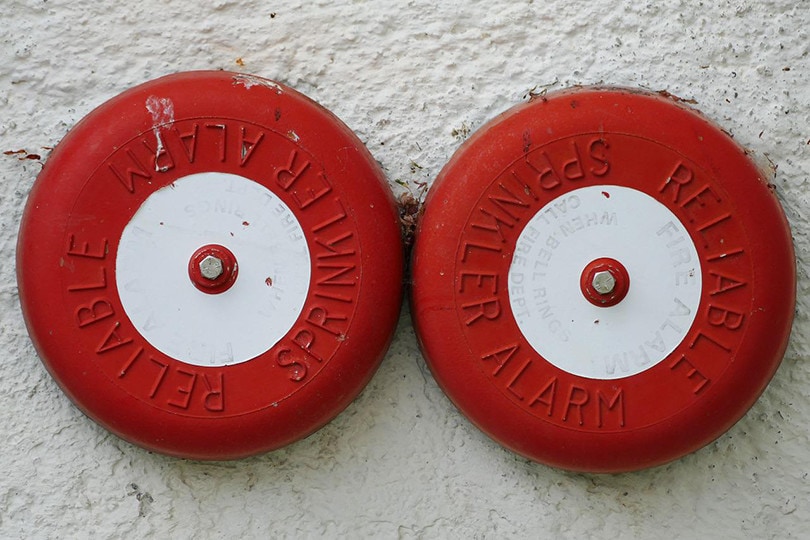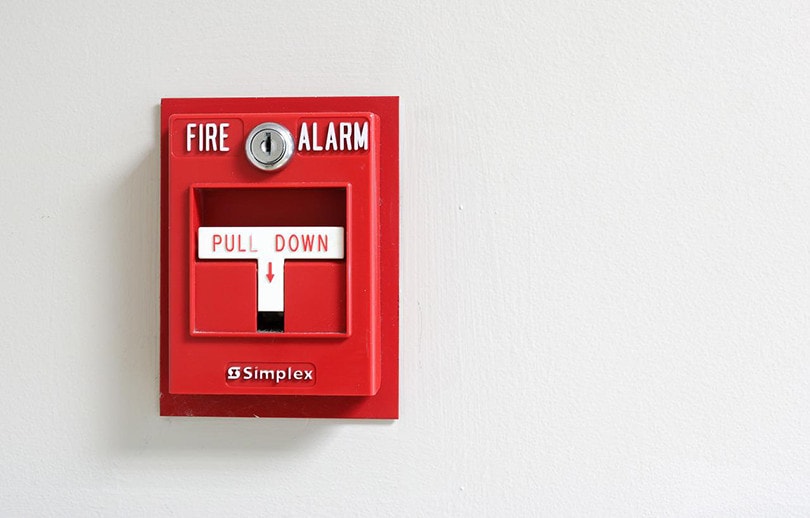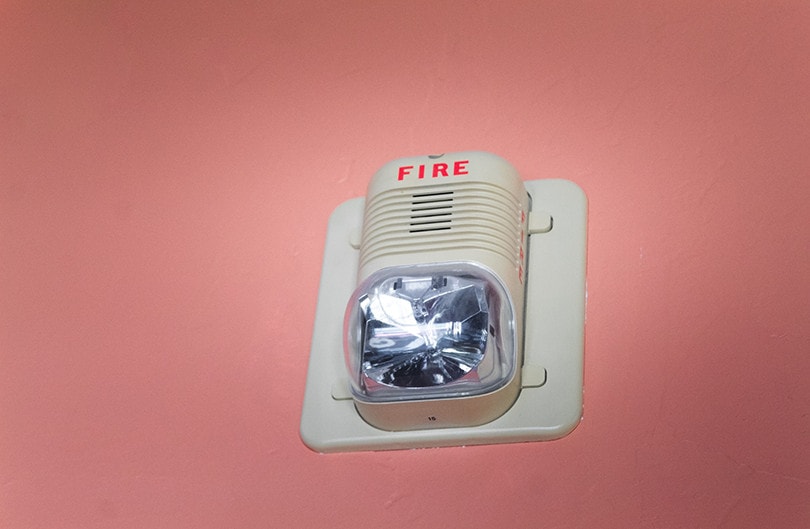How Loud Is a Fire Alarm In Decibels (dB)? With Noise Comparison Chart
-

- Last updated:

Fire alarms are loud. Everyone has likely been jolted out of a moment of quiet by the blaring of an alarm at some point in their life. The onset of a fire alarm can be quite alarming and that is on purpose. These alarms need to be loud to alert people to a potentially life-threatening problem that needs their attention. But how loud are fire alarms exactly?
Fire alarms actually have a wide range of volumes based on rules and regulations. The quietest fire alarms alert at 65 dB, while the loudest fire alarms can be as high as 120 dB. This article gives a comprehensive comparison of how loud a fire alarm is compared to other day-to-day sounds you might hear. It also digs into the laws that govern why fire alarms are so loud to begin with and whether fire alarms are loud enough to damage a person’s hearing.
Fire Alarm Noise Comparison

Depending on what type of fire alarm you are hearing, the noise level can vary from a shout to a nearby thunderclap. At their quietest, fire alarms slot in between a regular talking voice and a vacuum cleaner. That doesn’t sound very loud, but these alarms are designed for quiet spaces. Imagine a vacuum cleaner going off in the middle of a moment of silence. It would cause a stir.
On the other end of the spectrum, fire alarms can be extremely loud. The loudest fire alarms clock in at 120 dB, and that level of noise is serious. 120 dB is similar in volume to a rock concert and a sonic boom and ties with a peal of thunder for the level of noise. Loud fire alarms are louder than almost anything a person hears on a daily basis. These alarms are louder than commuter traffic, general crowd noise, a passing train, and people screaming. That is sure to catch anyone’s attention.
| Sound | Volume (dB) |
| Whisper | 30 |
| Regular Voice | 60 |
| Fire Alarm (Low End) | 65 |
| Vacuum | 70 |
| Heavy Traffic | 85 |
| Train Platform | 95 |
| Rock Concert | 110 |
| Fire Alarm (High End) | 120 |
| Thunderclap | 120 |
| Jet Taking Off | 140 |
| Gunshot | 140-165 |
Depending on what type of fire alarm is installed and what type of space it is installed in, they can vary greatly in volume level. Some fire alarms will be 80 dB, while others will be 100 dB. The volume at which a fire alarm goes off is actually regulated by law.
Why Are Fire Alarms So Loud?
Fire alarms are extremely loud because they are regulated to be that way. There are various laws governing how loud fire alarms should be and can be. The maximum legal limit for a fire alarm in the United States is capped at 120 dBs. Fire alarms cannot be louder than that. However, fire alarms are required by code to reach a volume that is at least 15 dB higher than the ambient noise level of the space they are operating in. That means that a fire alarm in a library should theoretically be a lot quieter than a fire alarm in a workshop. The minimum volume for a fire alarm is 65 dB which is similar to that of a vacuum cleaner running at full blast. This sound is more than enough in quiet spaces but is not high enough to catch people’s attention in a busy space.
The purpose of fire alarms is to alert people to a problem, so they have to be loud enough to make a statement.

Can Fire Alarms Damage Your Hearing?
Technically, fire alarms are loud enough to damage a person’s hearing. However, many factors make that outcome extremely unlikely. First, the level of noise drops off considerably with distance. The farther you get away from the source of loud noise, the softer the noise becomes. While loud fire alarms are programmed to go off at 120 dB, people are often not standing adjacent to the source of the noise. Fire alarms are often elevated and put in large spaces so chances are your ears will not be level and close to a fire alarm horn.
Secondly, people are often not exposed to the noise from a fire alarm for long. The purpose of a fire alarm is to get people to evacuate from a space. People should immediately begin moving away from the source of the fire alarm noise as soon as the alarm goes off. That means people should not be lingering in an area where the noise levels are damaging for longer than a couple of minutes. Hearing damage quickly recovers if the sound is brief and not sustained.
The most common people to be at risk of hearing damage from fire alarms are those who service the alarms themselves and have to remain in close proximity to the noise for long periods of time to test the systems for accuracy.
Final Thoughts
If you have ever been in a place where the fire alarm sounds painfully loud, you are right. Fire alarms can reach levels that are incredibly noisy and can actually damage a person’s hearing with prolonged exposure. But these alarms serve a very important function in society, and their noise levels are regulated by experts and by lawmakers to ensure they do their job properly without causing any harm to people nearby. Fire alarms are incredibly noisy, and that is a good thing.
Featured Image Credit: stux, Pixabay
Contents

